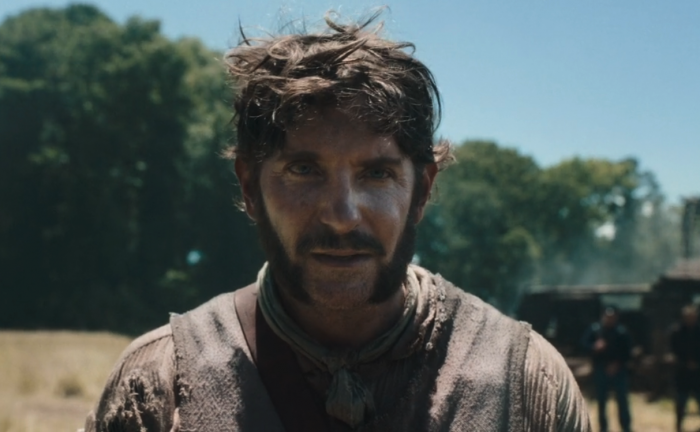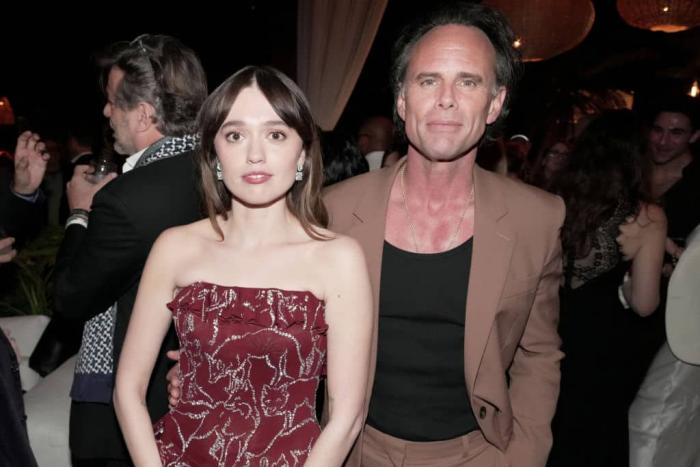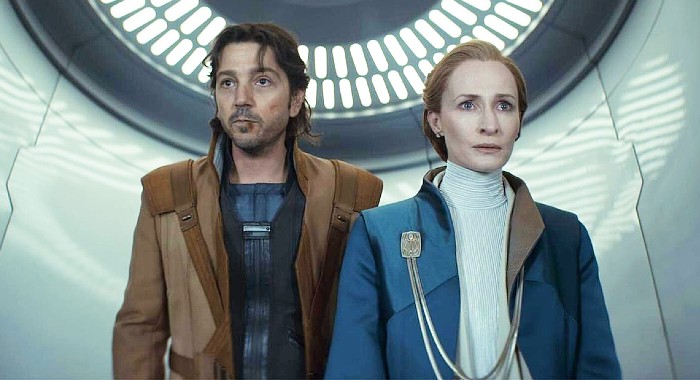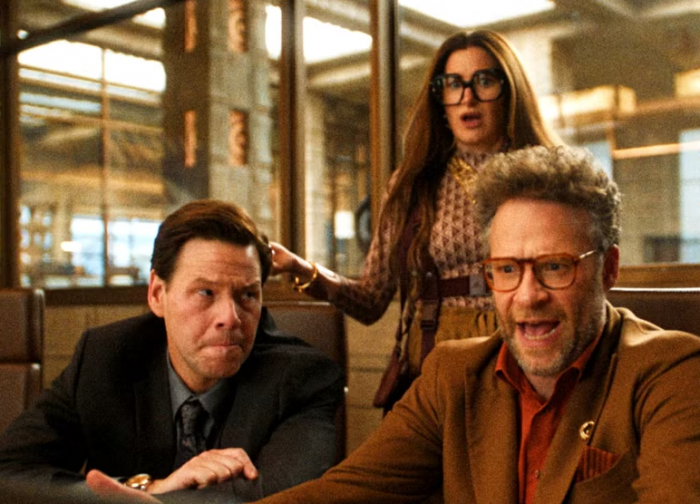
J.K. Rowling Is In Danger of Becoming the Next George Lucas
By Kayleigh Donaldson | Film | September 27, 2018

The latest trailer for Fantastic Beasts: The Crimes of Grindelwald dropped and you know something is up when the least controversial thing about it is the continued presence of Johnny Depp. It was revealed that Nagini, Voldemort’s trusted snake and the location of one of his horcruxes, is actually a person. Claudia Kim plays the role of a Maledictus, a witch that carries a blood curse that, accoring to Pottermore, ‘destines her ultimately to transform into a beast’. The film will apparently further explain her character and how Nagini eventually loses herself entirely to her animal form. So, don’t worry if you were feeling a bit weird about the fact that Neville Longbottom actually murdered a woman and not just a snake.
It didn’t take long for East Asian voices on Twitter to point out the screwed up optics of this situation: An East Asian woman, one of only a handful in the entire Potter-verse, who has inherited a ‘blood curse’ from her mother that turns her into a murderous beast who is forcibly kept as a pet and then a vessel for a man’s soul, only to be beheaded in one of the series’ most climactic moments. The name Nagini is also a Sanskrit name, which adds another notch to the bedpost of Rowling’s geographical and etymological blindness (Cho Chang, anyone?) Rowling’s fans came out in full force to defend her, mostly with cries that the rest of us are jealous or bullies, but the topic only highlighted something that has been brewing for a long time: J.K. Rowling is going full George Lucas.
J.K. Rowling claimed she’d been holding onto the secret of Nagini’s origin for over twenty years, a fact that is hard to believe given her constant mental re-writing of her own creation (and that one unfortunate scene where Voldemort instructs Wormtail to milk Nagini). As the main series ended and fans settled into the aftermath of what is undoubtedly one of the towering creations of children’s fiction, the true critical discourse began. Fandom had long been interrogating Rowling’s work and pointing out areas she did not entirely succeed in. That’s half the fun of being a fan and a crucial part of creative growth. Rowling’s responses have mostly been what I think of as hastily scrawled red pen notes in the margins. Revealing Dumbledore’s sexuality after the series ended was one thing, but to then continually insist on the diversity of Hogwarts by referring to characters we neither met not spent any real time with became instantly cheap. When presented with a multi-million dollar opportunity to rectify that, she failed. The Fantastic Beasts series, set in New York during the Harlem Renaissance, is almost whiter than the rest of the Harry Potter series. That was a choice. Rowling has the kind of unfettered creative and financial storytelling opportunities very few people on this planet are afforded, and these are the choices she makes.
Rowling has always been praised for her attention to detail and the care with which she builds her lavish worlds. She has always worked to draw distinct parallels between the wizarding world and ours, especially in their politics. Professor Umbridge is a deliberate call-back to Margaret Thatcher, Voldemort is essentially magical Hitler, and the discrimination against wizards and witches not of ‘pure blood’ is Eugenics 101. All of these were, once again, choices Rowling made, and she has not been shy in discussing them. This can work in general terms. Creating a battle of good versus evil in a children’s world with enough real-life allegories to inspire an instinctive reaction is a common creative tactic and takes a skilful hand. The devil, however, is in the details. When you create a world that rich and layered, it only highlights the ineptitude of its failures, like its lack of diversity and the massive issues of creating a political sphere of wizard fascists alongside the ones of our reality.
It was once said of George Lucas that the major problem with Star Wars under his guidance, especially in the prequels, was his apparent disinterest in people. Lucas never seemed especially invested in the characters that populated his galaxy far, far away. There’s no way to stop a franchise from going off the rails when its own benevolent creator couldn’t care less about the fate of its inhabitants. Rowling clearly cares deeply about her cast - perhaps a little too much - but she doesn’t give a fuck about the Muggles of her world. The Potter series is full of disdainful asides about their apparently naivety, ignorance and ability to be easily manipulated. Even in the final chapter of the last book, Ron Weasley gets a punchline in about having to use the Confundus Charm on his Muggle driving instructor in order to pass. Even in the series’ end moments, Muggles are still puppets made to dance by almighty wizards.
This problem is only made worse by the mere existence of a prequel series because now Rowling has to explain how two different kinds of fascism - wizarding and human - were allowed to flourish. Rowling has already made blunder after blunder with her Pottermore expansions in trying to explain the wizarding ecosystem of North America. Her appropriations of Native American mythology angered many, while her most basic re-imagining of American history veered between embarrassing and comical. While the Salem witch trials were expanded to be the most earth-shaking event in American wizard history, the magical world’s responses to slavery, the Civil War and general formation of the United States of America were either glossed over or ignored altogether. For someone whose primary selling point as a writer is a love of detail, such issues are impossible to ignore in their ignorance and stupidity. It also utterly dehumanizes her creation beyond the general Muggle mockery. The wizards have a supposedly racism free utopia in America but seemingly chose to sit out dealing with enslaved masses.
There comes a point where the choices Rowling makes a creator go beyond ignorance and swerve hard into callousness. Choices like this are all the more baffling given Rowling’s immense wealth and connections. She could get sensitivity readers, she could afford to travel the world for research purposes, she could invite other authors into her universe, akin to what Rick Riordan is doing with his imprint. She has all the options in the world, vastly more than any other author working today, and this is what she does: She doesn’t do the appropriate research, she desperately tries to re-write the past, she reduces people of colour and their cultures to window dressing, and she does so while still retaining the mantle as a top-notch storyteller with impeccable attention to detail.
George Lucas never seemed all that interested in the parts of Star Wars that had the fans so enthralled with his mythos. That seems to be a growing issue for Potter fans who want to see more of this world beyond its core team and its default whiteness. Rowling had readers hooked with her epic scale, her authentic world and her willingness to make the politics an obvious parallel to our own world. Harry Potter is a story of how even the most well-meaning people can find themselves enthralled by authoritarian leaders and their hatred stoked into all-out war. Now, as she continues to expand the world beyond its British roots, Rowling’s weaknesses and willing blindness as a writer have been exposed. What used to feel so real is now staggeringly incoherent and playing into archaic tropes that further exacerbate the questionable racial politics of her world. In many ways, J.K. Rowling is now the wrong person to be writing about the world of J.K. Rowling.
It may be beneficial for her to truly go full George Lucas in the future by handing over the reins of the franchise to fresher voices. The Star Wars world has never been more vibrant or exciting since Disney rebooted it and its potential has never felt greater. It’s doubtful Rowling will ever do this. Why would she? Her fans are for the most part still fiercely loyal to her and the Fantastic Beasts movies make enough money to ensure Warner Bros. will let her do whatever she wants for as long as she wants. Yet she has to do the work. She cannot coast on reputation or money alone if she wants this franchise to remain fresh and relevant. Watching her become a progressively worse storyteller and casually ignorant online presence has been tough to stomach as someone who was indelibly shaped by Harry Potter. Then again, George Lucas did teach us well: You either end your beloved series a hero or you run it into the ground and live long enough to become your own Jar Jar Binks.



